This is an Eval Central archive copy, find the original at freshspectrum.com.
If nobody sees your amazing chart, can you still call it amazing?
For data to have an impact, it needs to be the right data, reaching the right person, at the right time, and in the right format.
That’s a lot that has to go right. And only a little of it has anything to do with your chart choices.
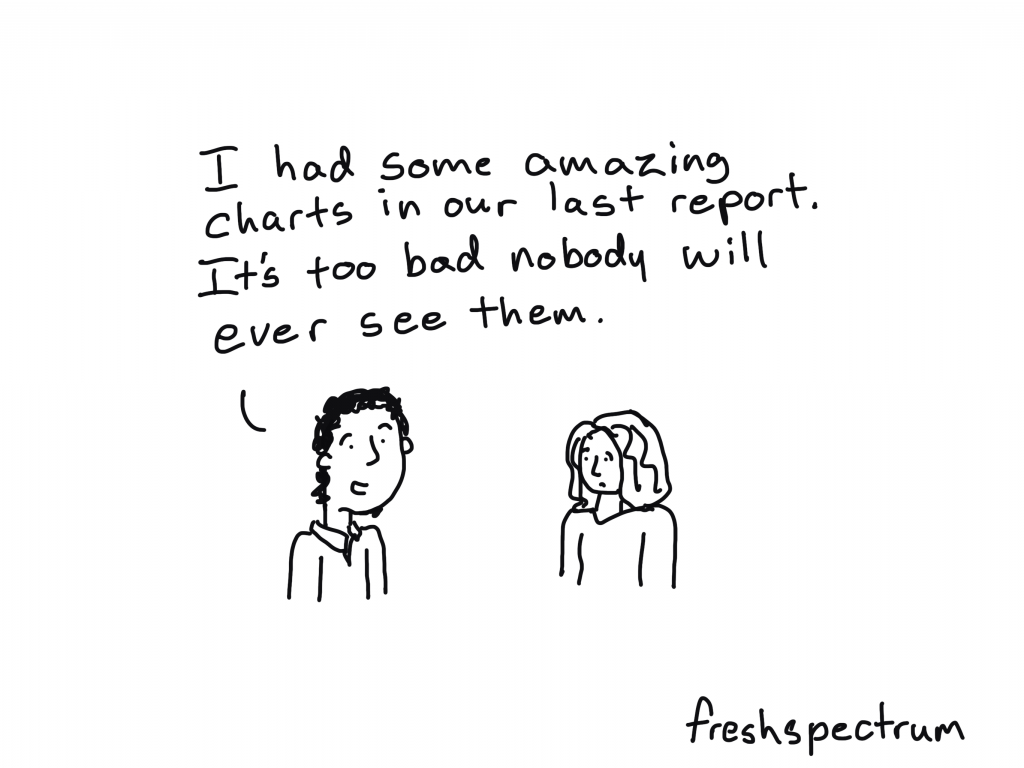
Do you have the skills necessary to create modern reports?
Most reports these days are created digitally, sent digitally, and experienced through a screen. In other words, modern report design is web design.
Our grad programs are still training for an analog world, not the digital one where we currently reside. So many of the 21st century skills necessary to create a modern report were not taught in grad school.
I’m launching a new virtual workshop, here is what I plan to teach.
In short, a little about a lot of things. Generally they all fit within four categories that I believe are fundamental components of 21st century report design.
- Creative Reporting
- Content Strategy
- UX/UI Design
- Digital Evaluation
Theme 1. Creative Reporting. Escaping the standard downloadable PDF report rut.
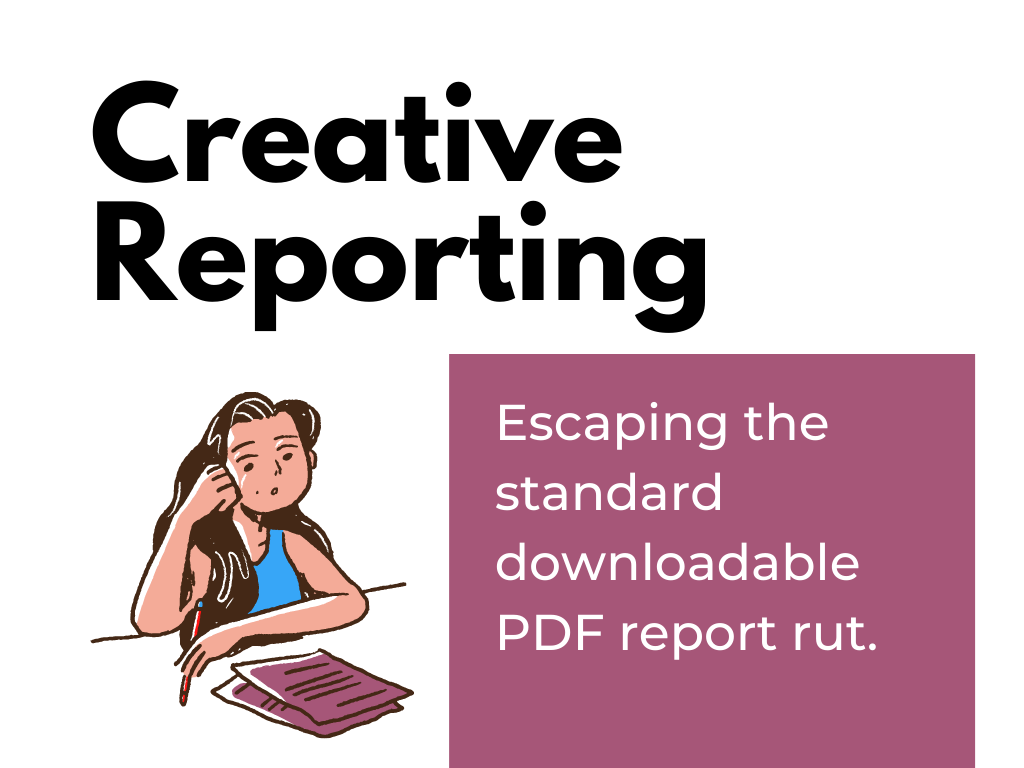
The internet has brought us countless ways to reach an audience. Each channel is unique, with its own rules, design standards, and cultures. This means that a modern report design might look very different from how it used to look.
Topics under this theme include infographic design, social media illustration, video production, slide doc creation, multimedia report development, and vector design.
Theme 2. Content Strategy. Reaching beyond the usual audience.
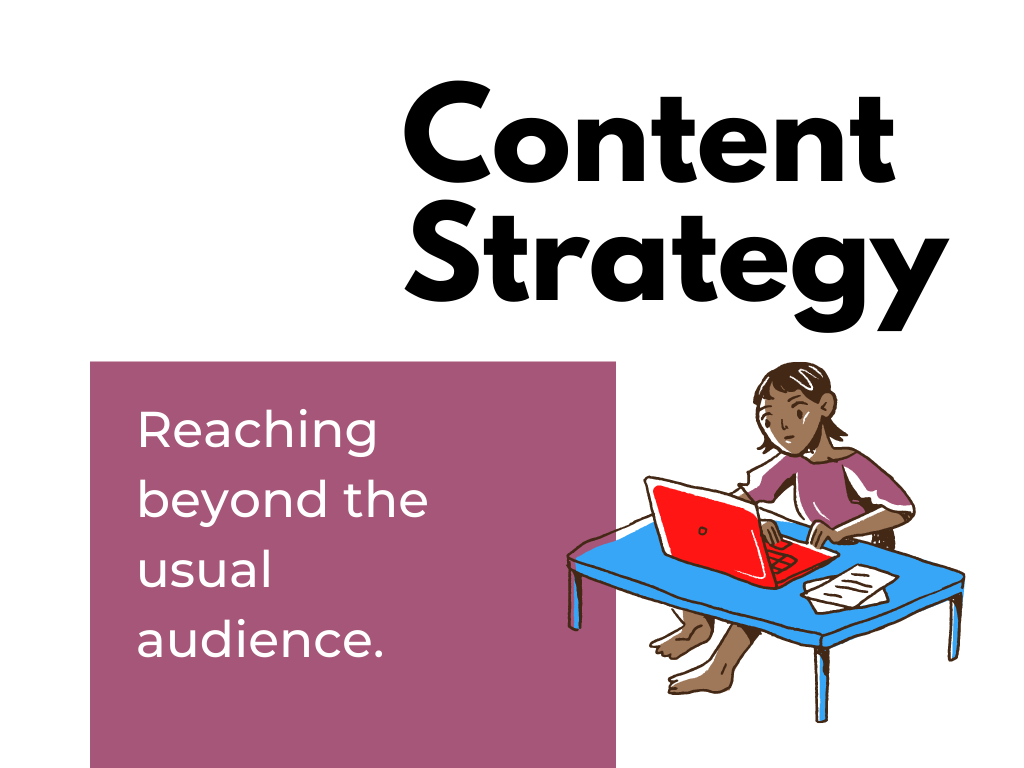
Many organizations are following the Field of Dreams model of report sharing, “if you share it on your website, they will come.” But sharing a report publicly on your website is just the absolute bare minimum. Reaching beyond the usual audience takes strategy.
During sessions on this theme we will take on topics like content strategy, audience avatars, marketing funnels, alternative dissemination strategies, push/pull strategies, and newsletter design.
Theme 3. UX/UI Design. Making more data, less complicated.
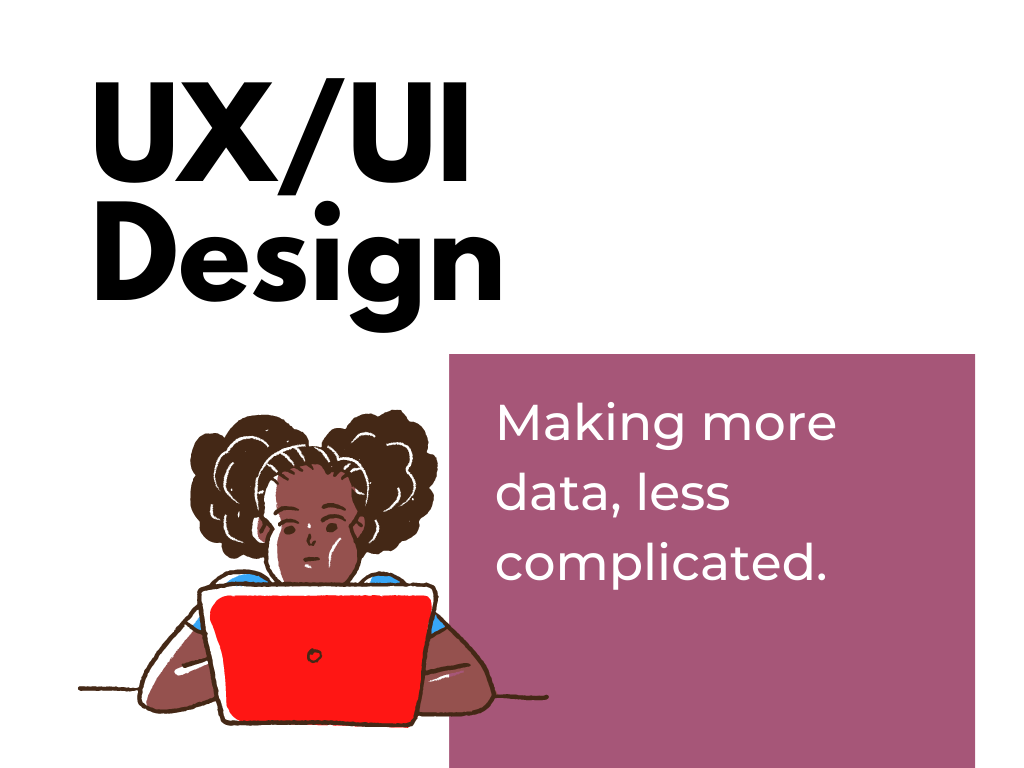
The reality of our digital world is that we now have access to more data than ever and the potential to reach more people than ever. Unfortunately, so many of those people are just completely overwhelmed. So it puts us into a tough position, how do we present more data, while making the experience less complicated?
Topics for this theme will include things like user experience methodologies, user interface design, interactive visualization design, and report automation.
Theme 4. Digital Evaluation. Determining what works so you can do better.
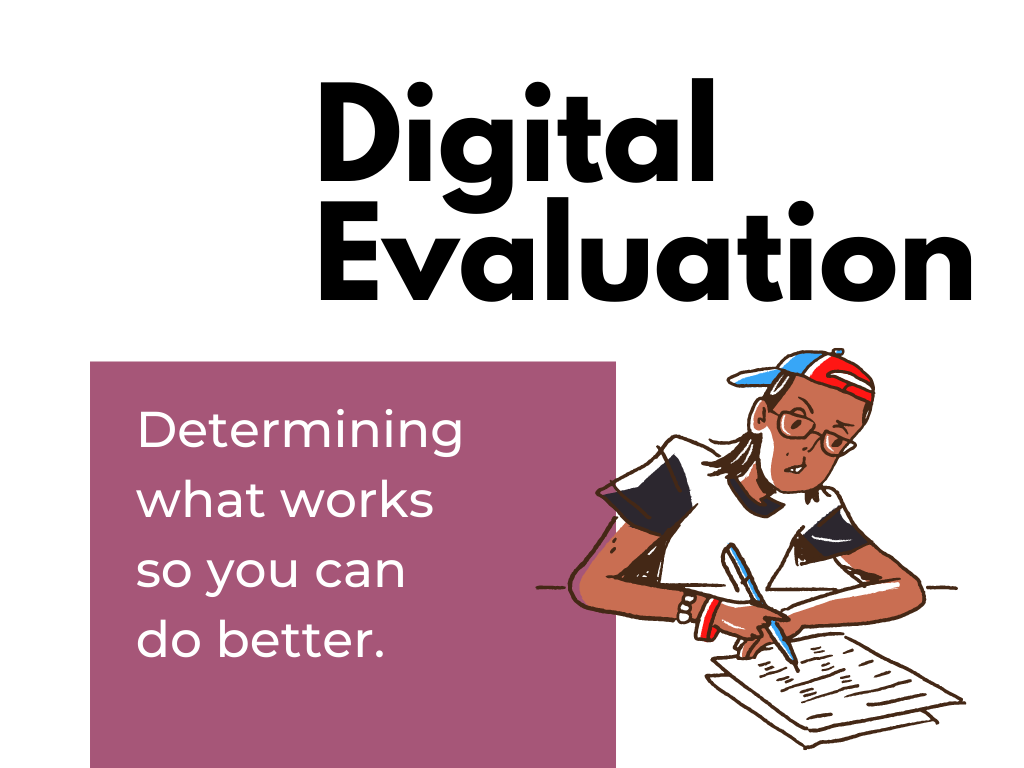
Evaluation helps us identify opportunities, assess the results of our actions, and improve our strategies. There are all sorts of ways to evaluate digital reporting efforts but the knee jerk method among most of the data people is just to send a survey. I’m not anti-survey, but there are a lot of other data sources we can leverage to improve our approaches.
Topics for this theme include web analytics, social media insights, funnel analytics, keyword analytics, backlink evaluation, and user experience evaluation.
How the workshop will be structured.
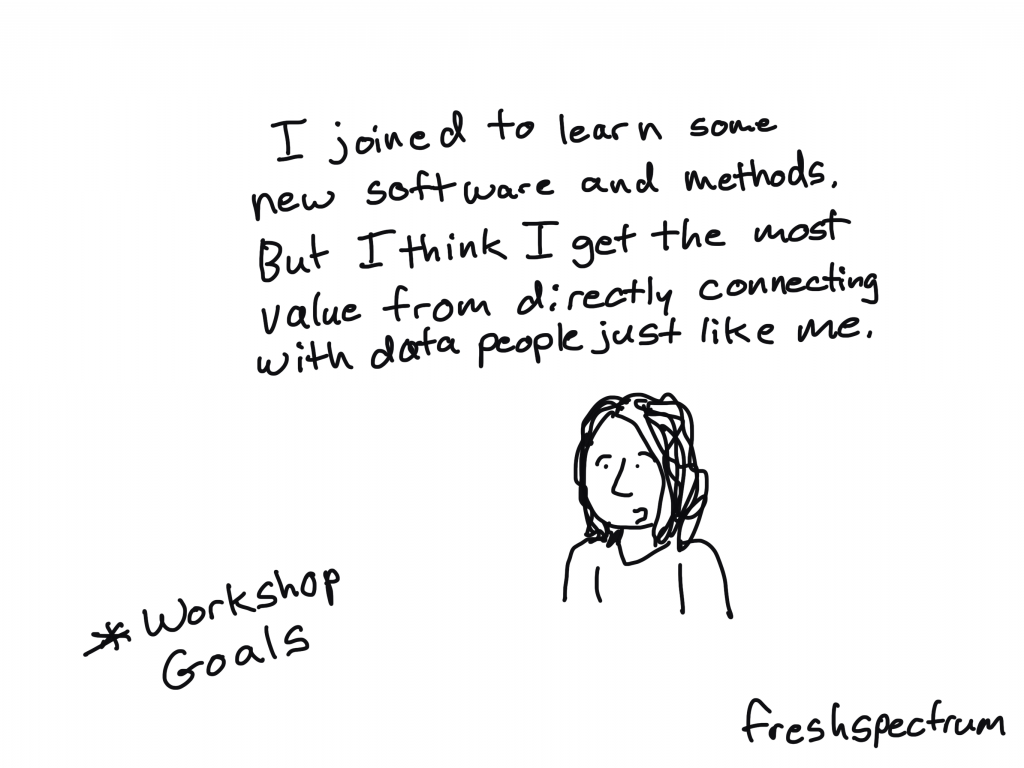
We will meet live on Zoom for an hour, 4 times each month. Each session will focus on a different subtopic from one of the four themes. You can expect 30-45 minutes of content with the rest of the time reserved for questions/conversation. Every session will be recorded and available to watch later.
What you will learn.
The goal for the workshop is to teach all the little things you need to know to improve your 21st century reporting skills.
This will include:
- Introductions to new design software and tools.
- Instruction on practical creative processes and methods.
- Opportunities to practice new skills and present your work.
- Direct support as you work to improve your skills.
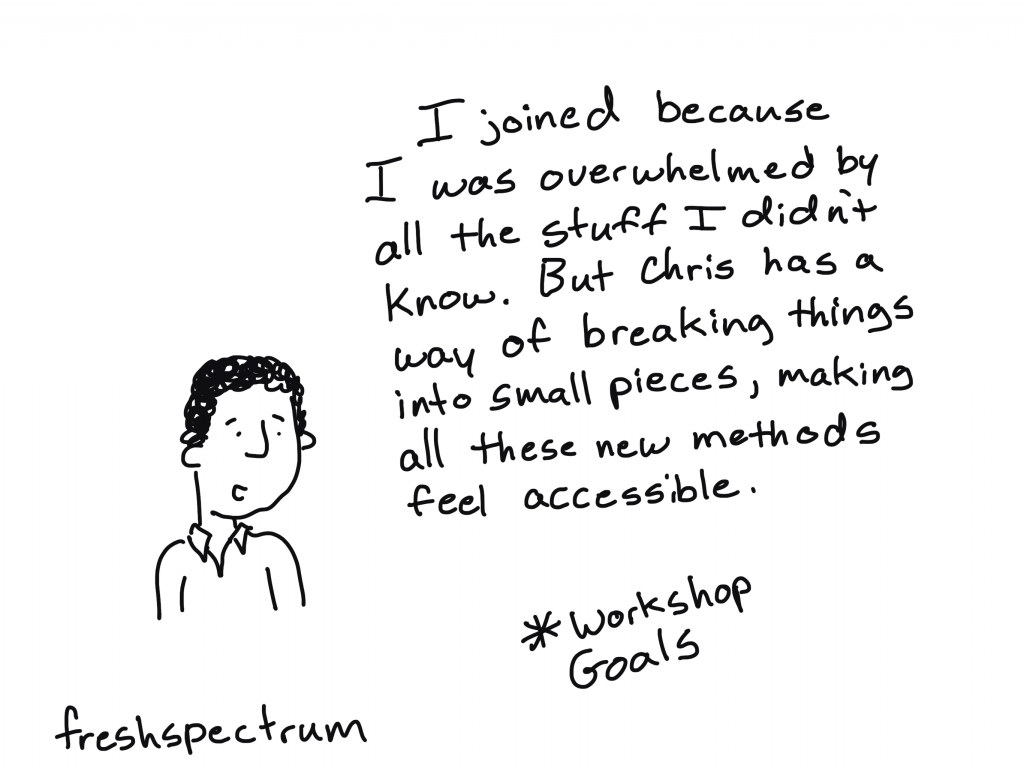
How much will the workshop cost?
The workshop has a buffet style all-you-can-learn pricing model. The price is based on the length of your commitment. No matter the length you choose, you get access to all live webinars and recorded sessions.
- 3 months: $199
- 6 months: $349 (includes a single 1 on 1 coaching call with Chris)
- 12 months: $499 (includes two 1 on 1 coaching calls with Chris)
What if I enroll and don’t like learning from you?
Let me know within 30 days and I’ll refund your enrollment.
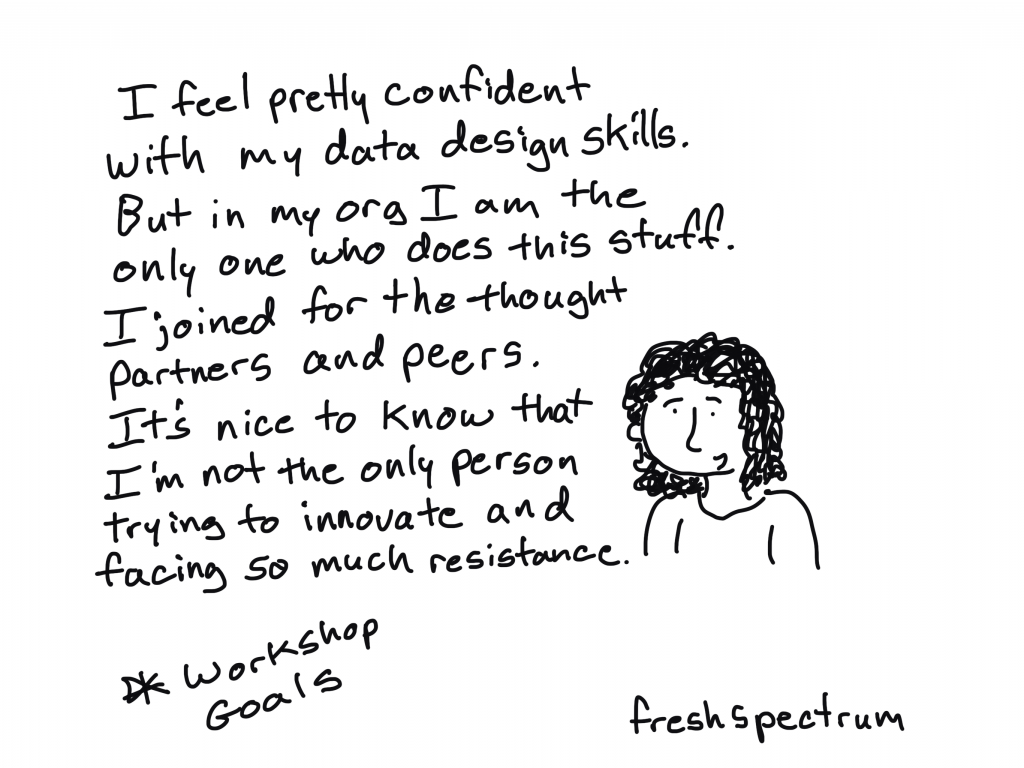
Will you offer scholarships for…?
Yes. Scholarships will be available and will vary based on need.
When will it launch, and where do I sign up?
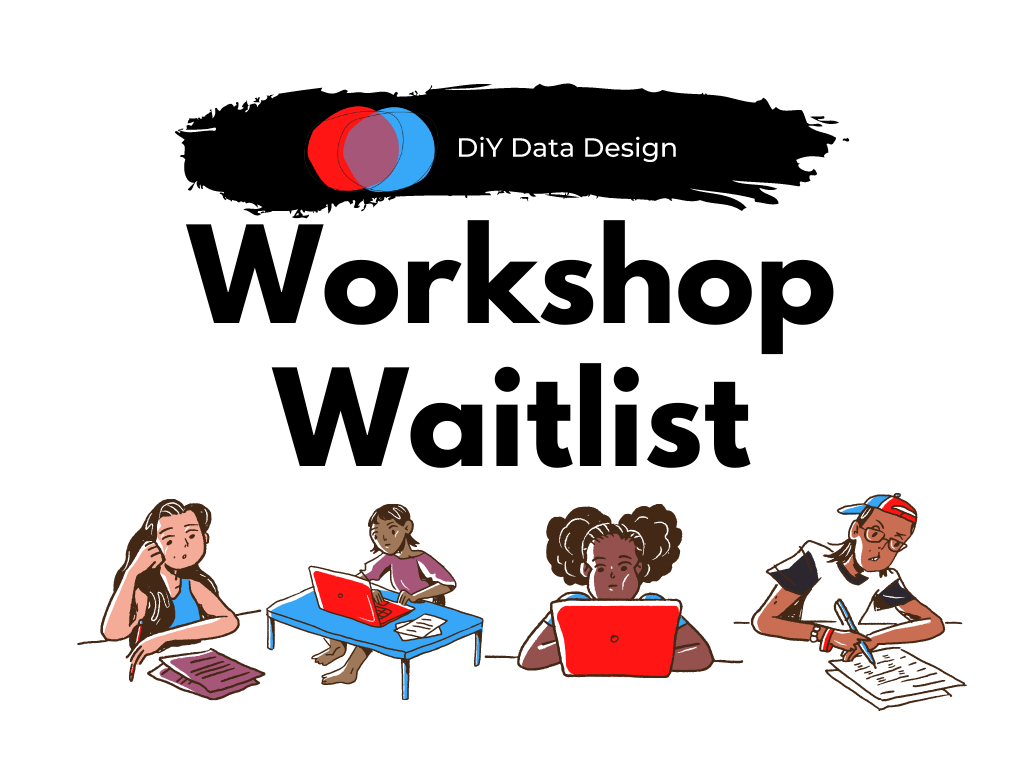
The plan is to launch in early September.
If you would like to be one of the first to know when registration is live, just add your name to the waitlist here: